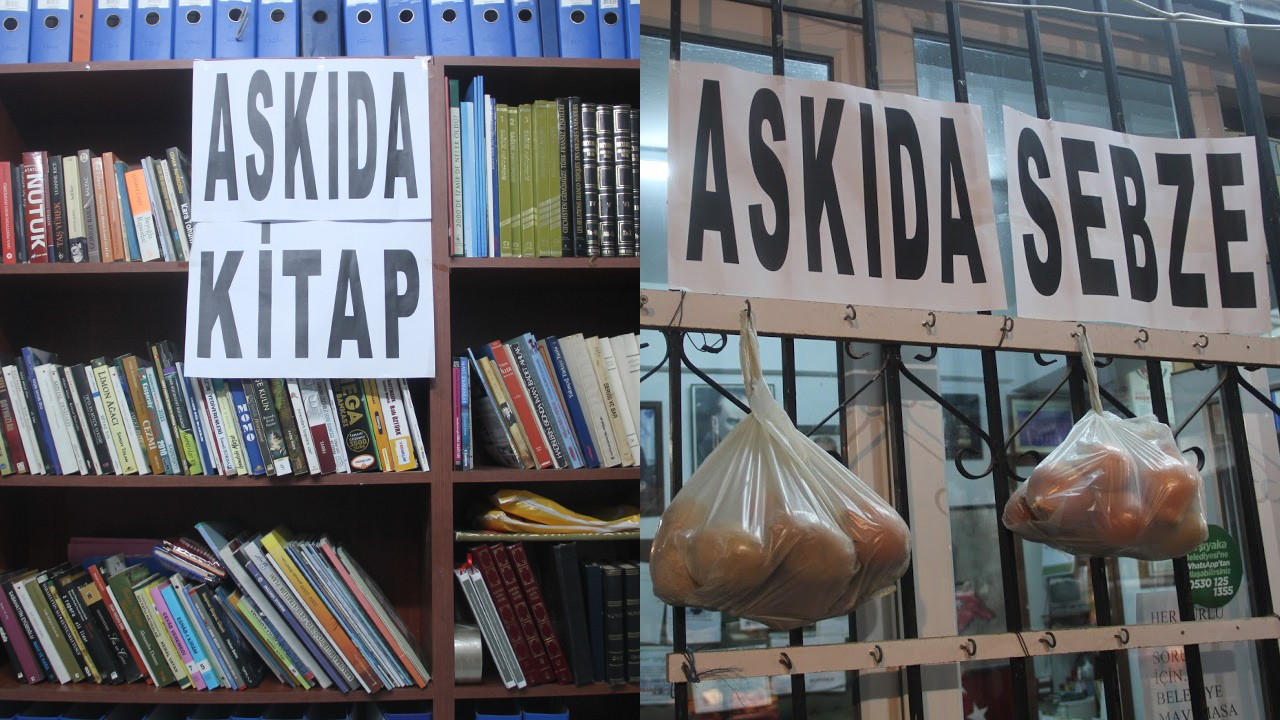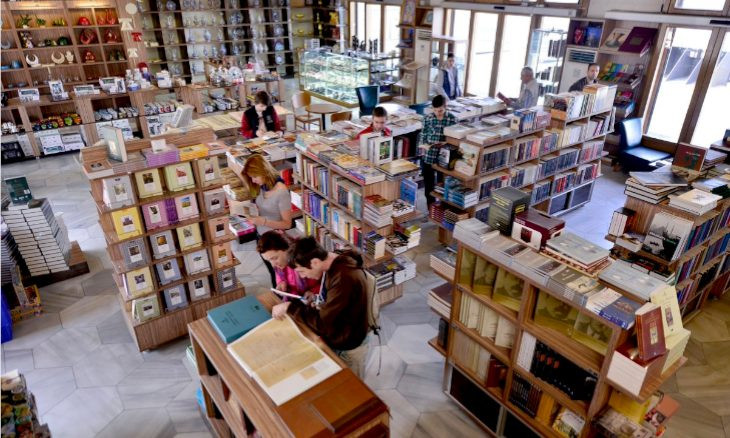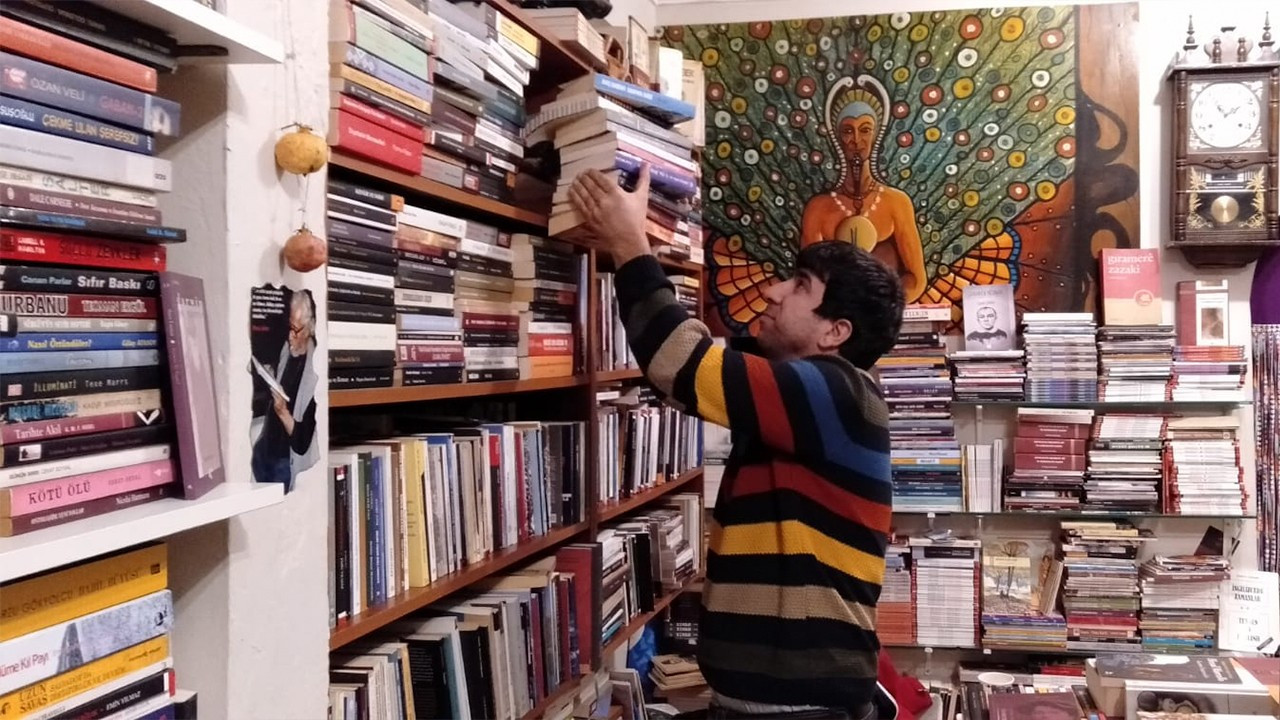Publishers hard-hit by plummeting lira: We can’t print books
With the Turkish Lira now valued at over 13 to the dollar, newspaper and book publishers are struggling. Some industry giants fear for the future of the industry if prices continue to rise.
Ferhat Yaşar / DUVAR
The value of the Turkish Lira has plunged to historic lows, and with it has come an exponential rise in the price of paper. The newspaper and book publishing industry is struggling, and many of the industry’s key players fear for their futures if the currency continues to lose value.
Some newspapers and book publishers have already had to cut production to grapple with the rise in prices. The lira has lost over 30% of its value since the beginning of the year - in January 2021, it hovered at around 7.3 to the dollar. Now, that number is above 13. The price of the paper used to print book covers has risen by 100%, say industry experts, paper used for book pages by 20%, and top-of-the-line paper by 35%. The specialty paper used to print children’s and art books is up 40%. The price of newspaper printing supplies has also skyrocketed.
“In this situation, it is very difficult for publishers to survive,” Süleyman Çevik, Editor-in-Chief of Nûbihar Publications, said.
The SEKA paper factory in İzmit produced paper for the Turkish publishing industry from 1936 until 2005, when it was privatized. Since 2005, the Turkish publishing industry has been importing paper and is therefore vulnerable to the volatility of exchange rates. In 2018, a ton of paper increased from 750 euros to 900, while a ton of newsprint nearly doubled in price from $450 to $800. As a result of these increases, many local Turkish publishing houses were forced to close.
According to Kenan Kocatürk, President of the Turkish Publishers’ Association, with the current rise in prices, publishers are again being forced to review their printing plans because of the rise in prices. Special coated paper and paper for book covers has risen from $750 at the beginning of last year, he said, to $1,500 per ton now - overall, paper prices have increased by 60-70%. Publishers, he said, are in shock.
“Should we produce a book? How do we set the price of the book we produce? How will we maintain our bond with the reader? Because of this, we are in a difficult situation,” Kocatürk said.
He said that publishers have asked the government for support, either in the form of direct support to the sector or subsidies for imported paper, but to no avail. Publishers have been forced to raise the prices of books, which has drawn the ire of readers.
“It seems that our publishers will be left alone with their readers in the midst of this crisis,” he added.
Elif Akkaya, President of the Turkish Publishers Cooperative, said that the rise in prices - she said that prices have doubled in the past year - will inherently be to the detriment of the industry.
“We established a production process that depends entirely on imported inputs. It doesn’t work like that,” she said, “We will shrink. We will close. We will not publish books. The constant fluctuation of the currency is a big blow to the publishing world.”
This rise in prices is felt even more distinctly by Kurdish publishing houses. Turkish publishing houses, at least, have relationships with schools, where their books are required reading. That isn’t the case for Kurdish publishers. Süleyman Çevik, whose publishing house primarily distributes Kurdish works, says that without support, the Kurdish publishing industry will die.
“Kurdish publishers like us don't stand a chance,” he said, “The state has not supported publishers like us up to this point, and it will not do so in the future. For this, we would need a state that values cultural studies.
The prices increases, then, will need to be reflected onto the reader.
“The reader will not be able to buy, and the publisher will not be able to sell,” he said.
(English version by Erin O'Brien)

 İzmir neighborhood starts book, produce crowdsourcing campaign for localsDomestic
İzmir neighborhood starts book, produce crowdsourcing campaign for localsDomestic Kurdish publishing houses shunned by Istanbul's city-run bookstoresDomestic
Kurdish publishing houses shunned by Istanbul's city-run bookstoresDomestic Istanbul bookstore owner trades Turkish books for Kurdish ones to combat assimilationCulture
Istanbul bookstore owner trades Turkish books for Kurdish ones to combat assimilationCulture